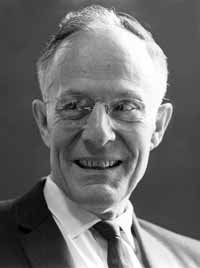Top 9 Quotes & Sayings by Theodore Schultz
Explore popular quotes and sayings by an American economist Theodore Schultz.
Last updated on April 18, 2025.
In general, I avoided giving lectures or attaching myself while abroad to a university. To learn what I wanted to know, I went instead to rural communities and onto actual farms. Talk with university people, government officials and U.S. personnel stationed in the country was much less rewarding for me.
Most of the people in the world are poor, so if we knew the economics of being poor, we would know much of the economics that really matters. Most of the world's poor people earn their living from agriculture, so if we knew the economics of agriculture, we would know much of the economics of being poor.





















